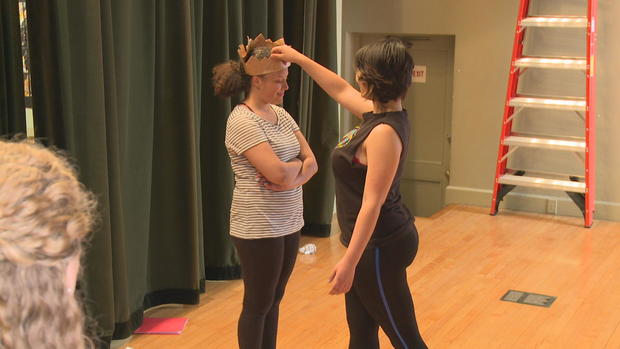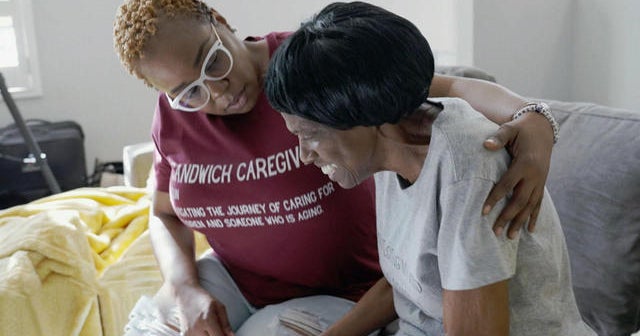Massachusetts juvenile offenders offered Shakespeare -- instead of jail
To act or not to act, that is the question for some juvenile offenders in Massachusetts.
They can choose to be part of an alternative sentencing program involving Shakespeare instead of lockup.
This program pairs actors from the famed Shakespeare & Company with troubled teens. The hope is that by studying the life lessons in Shakespeare's sonnets, the kids will learn to see themselves in a new light, reports CBS News correspondent Michelle Miller.
Reciting Shakespeare is tough enough for novices, without adding fight scenes with real broadswords.
"They're like the huge weapons," said the girl who portrays the character Titania from "A Midsummer Night's Dream."
Titania, queen of the fairies, and Puck, the sprite, are stage names we're using to protect the minors' identities.
What baffles leads Titania and Puck more than anything is that they would be trusted with a weapon at all.
So why are they?
"I think that what they're trying to do is prove that like even though you have a juvenile delinquent, you can trust them and they can, like, move on from assault and battery. Also, I think it's to get our anger out," Titania said.
Titania and Puck landed in Berkshire juvenile court after committing misdemeanor offenses, which could be anything from breaking and entering to substance abuse or assault.
"When I was fighting my dad, I had no clue I actually fought him until the cops came," Puck said.
This was their second chance.
Puck thought he'd get "more probation and a week or two in jail."
"If Shakespeare were alive he most definitely would probably end up in this court," said Paul Perachi.
The former first justice began sentencing troubled teens to the bard 17 years ago, because he saw the 16th century playwright as the ultimate outsider.
"That gives him instant credibility with the kids," Perachi said. "Shakespeare was a tyrant. He was always against the way people were doing things."
Not everyone was sold.
"They think we're coddling them. Whether they're placed on probation or whether they're sent away, someday going to come out, come back into the same environment and if we don't help them get some new skills they're going to continue on to a life of crime," Perachi said.
"I've got ADHD and bipolar depression so it's like the more I have to do, like learning lines, I don't get as depressed," Titania said.
Here, teens grow to relate to one ano ther and help each other find the patience to stop, breathe, then act.
"If one of us are down or something, then we help each other out," Puck said.
The hope is, after six weeks of playing the part, something sticks -- and in front of family, friends and parole officers, all the world's a stage.
Three hundred fifty kids have been sentenced to the stage.
The current judge, Joan McMenemy, says it has been a success by her standards.
She says while some of the kids might get into trouble again, they've had exposure to an experience that gives them something priceless -- the confidence to take on difficulties and challenges in their lives.





